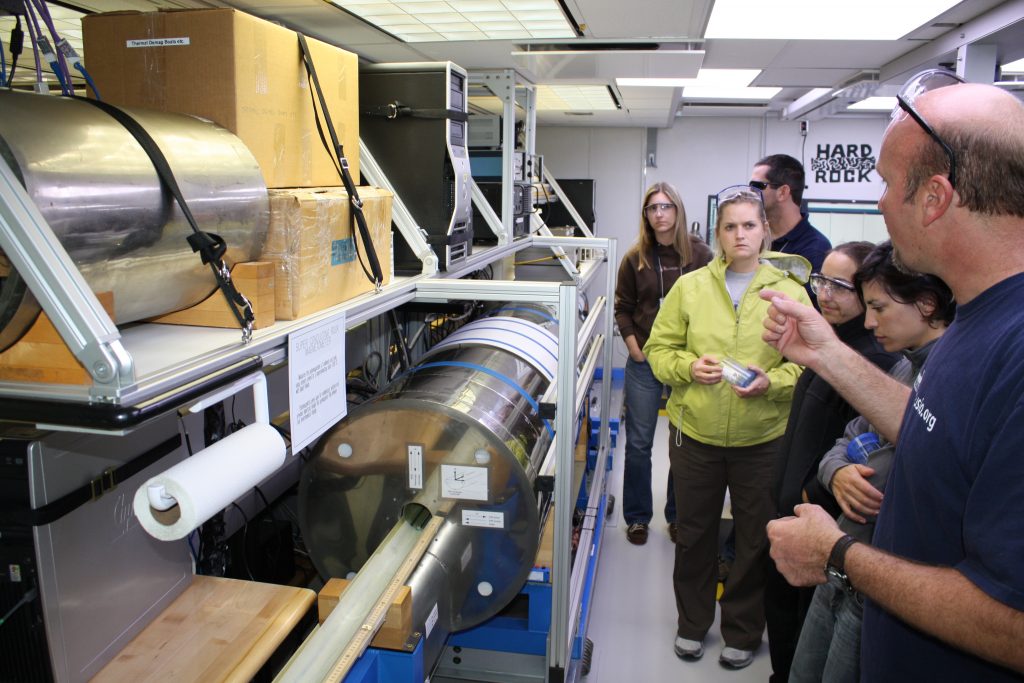
School of Rock: Science Questions and Answers
The School of Rock is an experience that allows educators to understand, in some detail, the science process that goes into retrieving and analyzing deep sea cores. The most fortunate "Rockers" get to experience this first-hand on an at -sea expedition on an ocean going drill ship. Our 2010 School of Rock is one of the fortunate ones being held at sea on the JOIDES Resolution. For educators and scientists to explore the nature of science together is a very good thing and has been at the heart of professional development opportunities for teachers for a long time. For this dialog to occur in the close isolation of the ship as it plays out drill pipe and fabricates the infrastructure which, hopefully, will answer the expedition’s important questions, causes the experience to be cemented into one’s being like nothing else. We have been at sea about a week. For most of us, our time has been filled with learning the routines of shipboard life and experiencing the exhilaration of doing something completely new. And there is much to learn and much that is new. Superimposed on that layer of experience is the science programs we are attending where there is even more to learn. We all come from various backgrounds and jobs and most are professionals at the top of their game. We have experience and knowledge to share. And we are usually not shy about sharing. This unique mix of talent and being on the ship makes the exchange even richer. The ship, of course, has it’s own science. It is built for science. It has done very little other work. Science and engineering is almost everywhere you look, the topic of almost every conversation. It takes awhile to make the visceral connection of this humming, banging, clanging place with the larger questions that loom. Realizations about the importance of knowing about the ocean and what is beneath it are brought to the bit of a drill here. One comes to realize the legacy of paradigm change on this steel platform and wonder, while pouring over the characteristics of a core, or peering at its contents under a microscope, what old ideas might be destined to fall as these pieces become the competed puzzle. What might be the connection between the results of a titration on water squeezed from an apparently dry lump of silt and global scale events such as a mass melting of glacial ice or the melting of large amounts of gas hydrates? Other even large questions are posed and debated. Why, given the importance of the world ocean to everything on the planet, are the numbers of legs and expeditions counted only in the hundreds while terrestrial geology field studies are counted in the hundreds of thousands? Practical concerns about the expense and the complicated nature of drilling account for some of the disparity but maybe the fact that we are primarily land organisms and feel comfortable and safe on land is part of the reason. This two weeks will be insufficient to relate all learned and pondered while at sea but the nature of the experience will cause the questions which have been raised in this unique setting to have a long life.